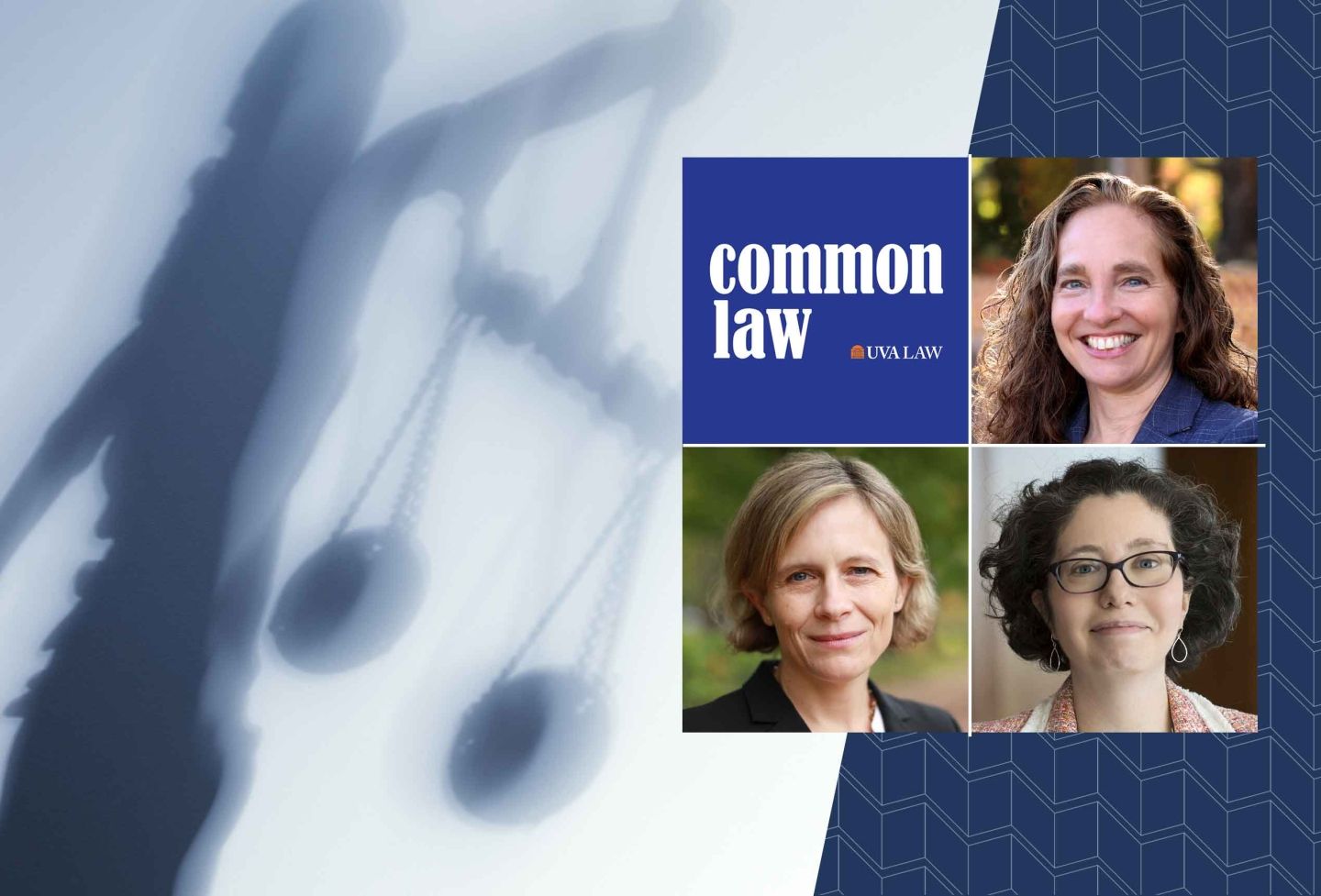The University of Virginia School of Law ranks No. 3 in the number of professors among the top 100 faculty in the country cited by the judiciary, according to a new study. Three professors — Brandon Garrett, Douglas Laycock and Caleb Nelson — rank among the top 25.
The research, prepared by a team of University of St. Thomas (Minnesota) professors who looked at U.S. Supreme Court, federal appeals court and state high court decisions from 2005-14, further ranks UVA Law professors as follows:
- Among state supreme courts, criminal law and wrongful convictions expert Garrett is the most-cited law professor in the country, and is No. 7 in citations among all studied courts.
- Saikrishna Prakash, a constitutional law expert with a focus on the executive branch, is tied with Garrett to rank fourth in U.S. Supreme Court citations and is among the top 100 most-cited professors.
- Laycock, a religious liberty and remedies expert, and Nelson, whose work focuses on federal courts and statutory interpretation, join Garrett as No. 10 and No. 23 on the list of professors most-cited by high courts overall.
- Virginia has eight professors in the top 100 for judicial citations, a list which also includes Kenneth S. Abraham, Richard J. Bonnie, John C. Jeffries Jr. and Frederick Schauer.
UVA Law Dean Risa Goluboff said that being cited frequently by judges is an important measure of the impact legal scholars have, not just in the legal community, but in everyday people's lives.
"This study confirms what we at UVA have always known: that we have top scholars who are expert at both analyzing and changing the law," Goluboff said. "Our uniquely collegial and pluralist intellectual community facilitates the kind of careful, sophisticated academic work that courts regularly seek out on even the thorniest issues. When people ask what legal scholarship does for the world of legal practice, they should look to UVA."
Garrett, author of the book "Convicting the Innocent: Where Criminal Prosecutions Go Wrong," said he is proud his research has played a part in changing the judiciary's view regarding evidence and claims of innocence.
"Evidence commonly used in criminal cases like confessions, eyewitness evidence and traditional forensics was often accepted uncritically," Garrett said. "In the past decade, however, we have seen a transformation in the way that courts review criminal convictions. The judges who are paying close attention to the scientific research investigating wrongful convictions are at the forefront of a criminal procedure revolution."
In compiling the study, "Judicial Impact of Law School Faculties," the authors reviewed professors with 250 or more citations in legal literature over a recent five-year period.
"We then created a very broad search that would include any academic article cited by courts, but would exclude amicus briefs, testimony, judging, and any other incidences of writing or impact," the authors said.
Founded in 1819, the University of Virginia School of Law is the second-oldest continuously operating law school in the nation. Consistently ranked among the top law schools, Virginia is a world-renowned training ground for distinguished lawyers and public servants, instilling in them a commitment to leadership, integrity and community service.


